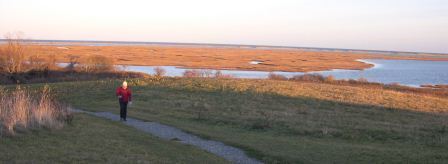As atmospheric greenhouse gases increase, temperatures are warming, sea levels are rising, snow and ice are decreasing, and there are local changes in extreme weather events such as droughts and storms. Across the world, these changes impact plants, and impact the people that rely on these plants. Changes in crops, wild medicines, pasturelands, and sacred natural areas are among the climate-driven threats to ethnobotanical systems.
These changes have already begun: ecosystems across the world have been impacted during the recent decades of rapid climate change. Some of the strongest impacts are felt at the highest and lowest elevations: mountaintops and coastlines. WLBC researchers work in both of these ecosystems to understand historical changes, monitor contemporary changes, and plan for future changes to plants and to ethnobotanical traditions. We advance these goals through studying changes in vegetation patterns and in plant phenology, and through interviews with traditional knowledge keepers.
Beyond the arctic, mountains are the ecosystem most threatened by climate change.
The IPCC projects temperatures for alpine regions to rise 6–8°C (11–14°F) by 2080, if the present trajectory of carbon emissions continues.
With increasing temperatures, plants are already moving up in elevation. For the highest alpine plants, however, there’s nowhere to go, and these highest-elevation plants are threatened directly by increased temperatures and indirectly by competition from lower-altitude plants extending their range. Indigenous mountain communities, already coping with the direct effects of climate change, also see traditional plant-based medicines becoming harder to find, alpine pastures declining as vegetation patterns change, and seasonal indicators falling out of synchrony.
 Island and coastal indigenous communities are on the frontline of climate change.
Island and coastal indigenous communities are on the frontline of climate change.
With vulnerable territories and natural resource-based livelihoods, these communities have first-hand knowledge of climate change impacts and mitigation strategies due to their long-term observations and engagement with their environments. Despite broad recognition of their vulnerability and unique knowledge and experiences, their voices have been largely unheard. We conduct research and organize activities in New England to bring the knowledge and concerns of these vulnerable communities into the global change discussions. Island and coastal peoples experience rising sea levels and shrinking territories; increasingly common and unpredictable severe weather, and the effects of these, which we document, include changes to their traditional resources due to migrating plants, invasive plants, altered plant communities, changing land-uses, changing plant population dynamics, and changing plant phenology.
